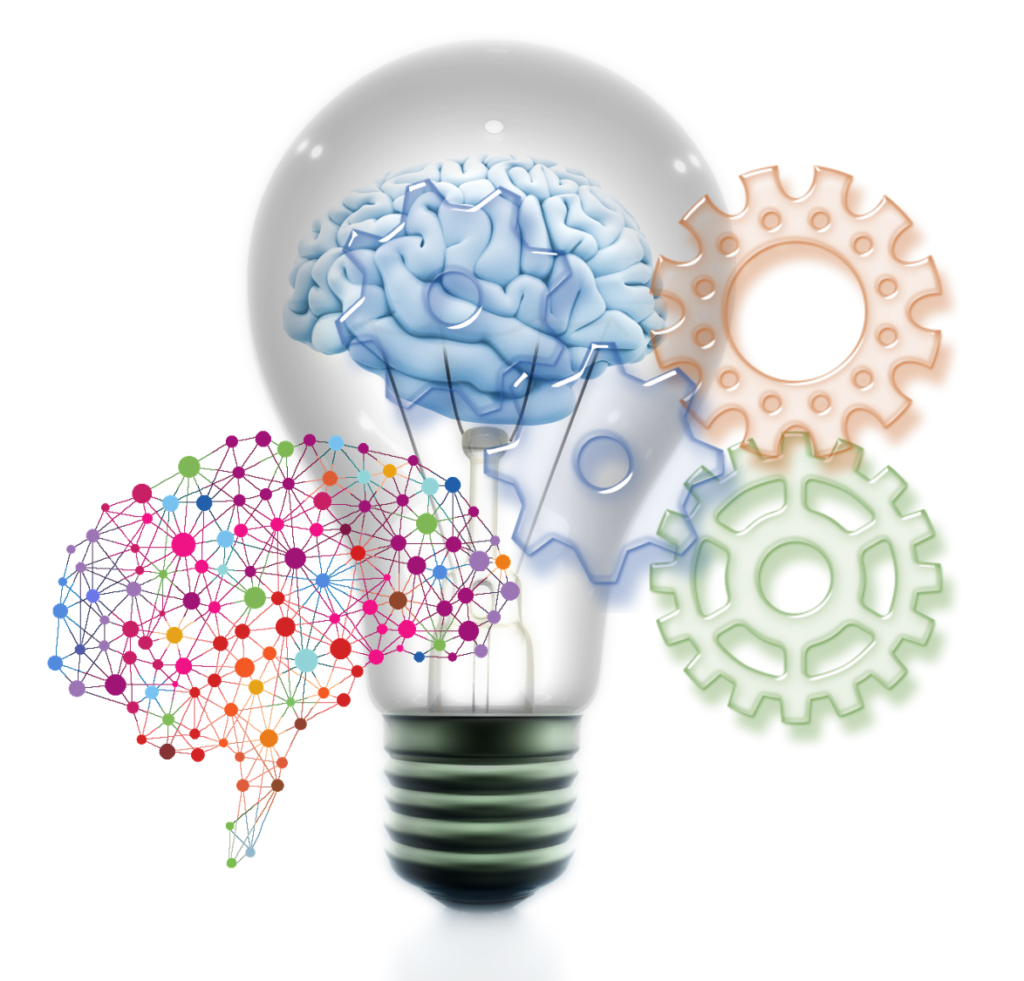Little wonder people are getting confused about the future of computing and automation. Bruno Michel (@BmiBruno), a scientist at IBM Research – Zurich, writes, “Ever since the American computer scientist John McCarthy coined the term ‘Artificial Intelligence’ in 1955, the public has imagined a future of sentient computers and robots that think and act like humans.”[1] Artificial intelligence (AI) has developed much differently than the public’s imagination thought it would. Most efforts are being made in narrow AI rather than artificial general intelligence (AGI). Narrow AI is developed to perform specific functions, like play chess. Most of the dire warnings about artificial intelligence being a threat to humankind refer to AGI. Toss in terms like cognitive computing and machine learning and the confusion about AI only increases. For example, Hadley Reynolds, principal analyst of NextEra Research, writes, “Cognitive computing and AI are often players in the same conversation. In one version of that conversation, the terms are used virtually interchangeably, as slightly uncomfortable synonyms.”[2] He adds:
“One person may say that she has ‘an AI’ that she is starting to rely on to help her do certain analytical tasks. Another may refer to that same software as one of several cognitive computing tools she uses. In another version of the conversation, however, the two terms are coming out of opposite corners, fighting it out round after round for top position in the marketplace.”
I am obviously not going to stop any debates about differences between things like artificial intelligence, cognitive computing, and machine learning; but, I can offer you my views. I define cognitive computing as a combination of semantic intelligence (artificial intelligence + natural language processing) and computational intelligence (advanced mathematics). I include machine learning under the broader heading of artificial intelligence. Jason Sparapani (@jmsparapani) notes, “Machine learning is an important part of the cognitive computing process. That’s the computer science discipline with deep roots in statistics, psychology and cognitive science that’s getting a lot of attention today.”[3] Understanding the differences between those terms is not as important as understanding what those capabilities can do for you. Michel explains, “The term ‘cognitive computing’ refers to systems that, rather than being explicitly programmed, are built to learn from their experiences. By extracting useful information from unstructured data, these systems accelerate the information age, helping their users with a broad range of tasks, from identifying unique market opportunities to discovering new treatments for diseases to crafting creative solutions for cities, companies, and communities.” Reynolds adds, “It is clear that accepting ‘cognitive’ and AI as synonyms is too simplistic an approach for today’s rapidly moving field.” He hopes that narrow AI receives the bulk of attention and that it is pursued for practical ends. “When we hear leaders like Ginni Rometty say that every business has a cognitive future,” he writes, “let’s hear that as a practical perception about how we can make machines smarter, not a call to have AI machines making the calls in our decision paths.”
I’m not quite as conservative as Reynolds in my hopes for cognitive computing systems’ future. Cognitive computing systems are already capable of making routine business decisions and, because they learn as they work, they are capable or making even better and more complex decisions (i.e., encountering fewer cases in which anomalies need to be brought to the attention of human decision makers for resolution). That doesn’t mean I believe humans should be taken out of the decision making loop. Quite the contrary. I believe that cognitive computing systems can free humans to concentrate on the most important decisions as well as provide them with actionable insights that can dramatically improve those decisions. As Michel notes, “Breakthroughs in computing are enhancing our ability to make sense of large bodies of data, providing guidance in some of the world’s most important decisions, and potentially revolutionizing entire industries.”
Michele Goetz (@mlgoetz), a principal analyst at Forrester Research, asks, “AI and cognitive computing have captured the imagination and interest of organization large and small but does anyone really know how to bring this new capability in and get value from it? Will AI and cognitive really change businesses and consumer experiences? Perhaps the bigger question — WHEN will this happen?”[4] Many analysts believe they already have an answer to those questions. For example, Adnan Khaleel (@AdnanKhaleel), a global strategist for Dell, talks about how machine intelligence (MI) and machine learning (ML) are already being used effectively to help businesses and consumers.[5] He writes:
“Today, machine learning applications augment what a data scientist already knows about general purchasing patterns by building individualized profiles, by examining all the data, and by keeping track of changes in purchasing behavior at a very granular level — something that was just not feasible on a large scale before. Ultimately, they are helping make these fraud models more accurate by not only increasing the likelihood of detecting fraud, but by also reducing the number of false positives. And this helps both the financial institutions and the customers they serve by keeping fraud-related costs low. Other applications where ML is gaining widespread use include web searching where context can be inferred, ad placements based on a better understanding of user profiles, network intrusion detection and cybersecurity, and predictive maintenance of equipment, where sensor data is proactively used to detect emerging problems. In my opinion, these are all still the low-hanging fruit when it comes to ML, and in the coming years, we will see more of our daily lives being improved by such smart applications.”
As the cognitive computing field matures, more and more use cases will emerge that demonstrate the value of cognitive computing capabilities. Concerning those capabilities, Michel writes:
“Broadly, cognitive systems offer five core capabilities. First, they create deeper human engagement, using data about an individual to create more fully human interactions. Second, they scale and elevate expertise, learning from experts in various fields and making that know-how available to broad populations. Third, they provide products, such as those connected to the Internet of Things, with the ability to sense the world around them and to learn about their users. Fourth, they allow their operators to make sense of large amounts of data, helping manage workflows, providing context, and allowing for continuous learning, better forecasting, and improved operational effectiveness. And, finally — perhaps most important — they allow their users to perceive patterns and opportunities that would be impossible to discover through traditional means.”
Mitch DeFelice, an Enterprise Architect for Health Care Service Corp, adds that the best cognitive solutions also help generate understanding. “Building applications that understand concepts,” he writes, “is a very powerful enabler for your business.”[6] To achieve understanding, DeFelice notes that cognitive computing systems should be leverage ontologies. “The real value proposition of cognitive computing,” he writes, “is embracing ontologies (domain of concepts) based upon open specifications as part of any cognitive solution.” You really don’t need to understand technical differences between AI, cognitive computing, and machine learning to understand that cognitive computing systems are likely going to embrace the capabilities your company will need most. Accenture analysts agree with this conclusion. They assert cognitive computing will provide the “ultimate long-term solution” for many business challenges.[7]
Footnotes
[1] Bruno Michel, “The Future of Computing,” Project Syndicate, 30 June 2016.
[2] Hadley Reynolds, “Cognitive computing and AI: allies or adversaries?” KMWorld, 1 July 2016.
[3] Jason Sparapani, “Think different: Cognitive computing systems will bring data-led change,” TechTarget, 28 June 2016.
[4] Michele Goetz, “AI And Cognitive Computing — What’s The Hype All About?” Information Management, 14 June 2016.
[5] Adnan Khaleel, “Machine Learning, Machine Intelligence and Cognitive Computing: What Does All of this Have to do with Big Data?” CIO, 26 May 2016.
[6] Mitch DeFelice, “AI and cognitive computing: how to distinguish the real value proposition,” CIO, 26 May 2016.
[7] “From Digitally Disrupted to Digital Disrupter,” Accenture, 2014.





